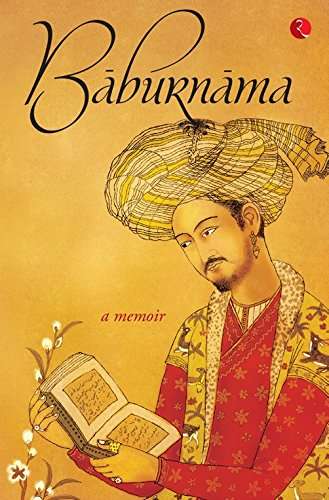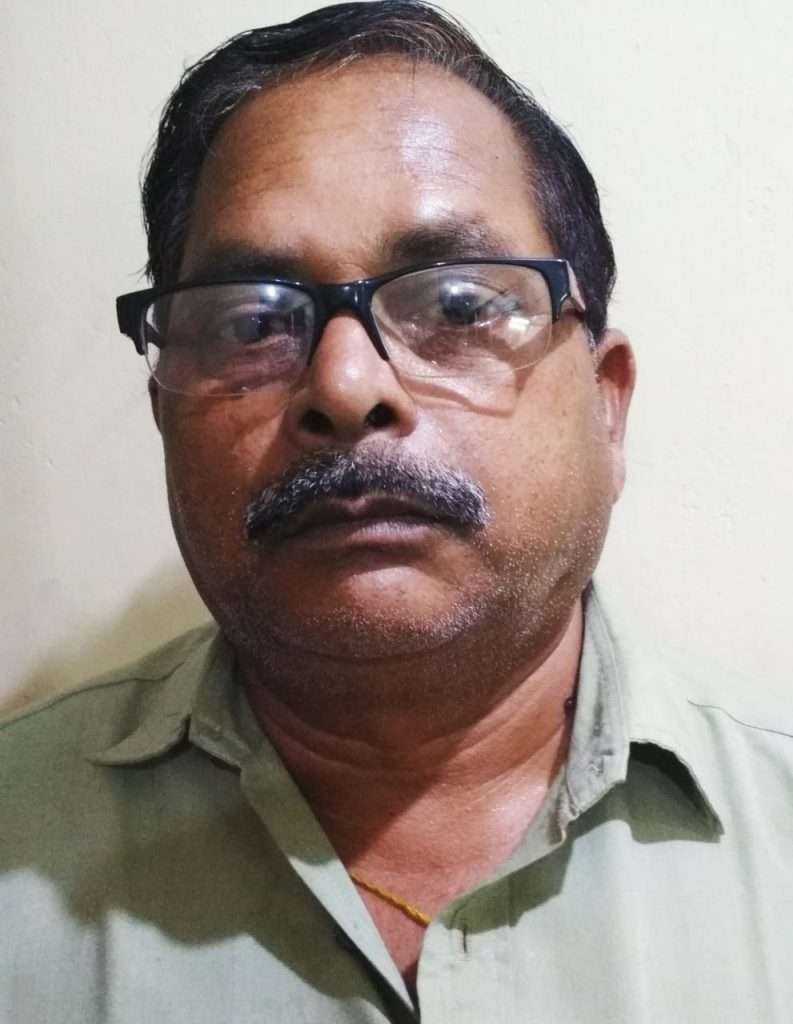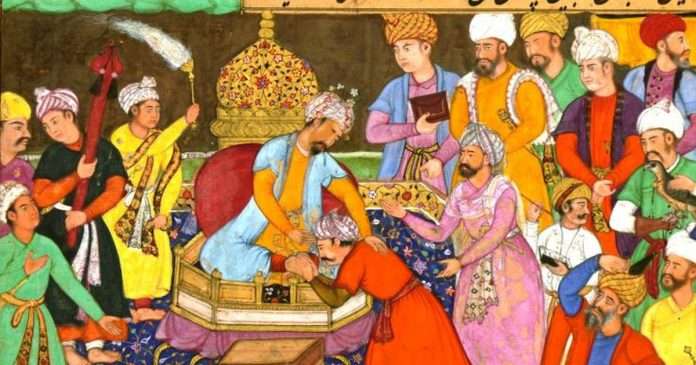Baburnama is the autobiography of the Mughal Emperor, Zahir-ud-din Babur, founder of the Mughal Empire in India. Babur was the great-great-great grandson of Timur. It is written the language of ChugtaiTurki, the spoken language of Andijan Timurids.
Apart from being a good soldier, Babur was a cultured man. He had poetic qualities. His memoir is replete with such poetry. His observations and comments in his memoirs reflect an interest in Nature, Society, Politics and economics. His account covers not only his own life but the life of his entire region in which he lived. His autobiography covers myriad topics as astronomy, geography, statecraft, military matters, weapons and battles, plants and animals, family chronicles, courtiers and artistes, poetry, music and paintings, wine parties, historical monuments tour and above all contemplations on human nature.
His great grandson Akbar made a Persian translation in 1589. In our modern times, Baburnama was translated into English by several authors. One of them was Mrs. A. S. Beveridge.
The Baburnama begins abruptly with these plain words – In the month of Ramdan, of the year 899 (1494) and in the twelfth year of my age, I became a ruler in the country of Farghana.
Babur describes his fluctuating fortunes as a minor ruler in Central Asia. He took and lost Samarkand twice and his move to Kabul in 1504. By 1519, Babur is established in Kabul and from there launches an invasion into North-Western India.
The final section of Baburnama covers the years 1525 to 1529 and the establishment of Mughal Empire in India. Babur descendants would expand and rule for three centuries.
Babur’s description is marvelous. He had aesthetic sense, So his manner of narration was poetic. It is a strange coincidence that a hard bodied soldier can be a poet. At the outset, he has clarified his position of being truthful in his statements. He wrote –
“I have not written all this to complain. I have simply written the truth. I do not intend by what I have written to compliment myself. I have simply set down exactly what happened. Since I have made it a point in this History to write the truth of every matter and to set down no more than the reality of every event as a consequence, I have reported every good and evil I have seen of father and brother and set down the actuality of every fault and virtue of relative and stranger. May the reader excuse me, may the listener take me not to task”.
Babur was the great-great-great grandson of Timur from father’s side. And from the mother’s side he descended from Genghis Khan. He remembers his maternal grandfather Yunas Khan as –
Yunas Khan, son of Wais Khan, son of Sher Ali Aughlon, son of Muhammed Khan, son of Khizr Khwaja Khan, son of Tugluq Timur Khan, son of Aisanbugha Khan, son of Dawa Khan, son of Baraq Khan, son of Yesuntawa Khan, son of Muatukan, son of Chagatai Khan, son of Genghis Khan.

One prominent thing in Baburnama is that whatever was seen by Babur in Hindustan, was despised and disliked by him. The only good thing in India he saw is South West monsoon which brings prosperity to India. He has written –
“Hindustan is a country that has few things to recommend it. The people are not handsome; they are not mixing. There are no good horses, meat, grapes, musk melons, cold water, no good food in the markets. There are no baths and no madrasas. There are no candles, not a candle stick.”
Historians say – It is a sweeping condemnation. Babur has not observed for a sufficient time on India. So it is bound to be incorrect. Moreover, North India was frequently attacked by foreigners. So why they will believe and mix with outsiders? Although Babur disliked India, he took a going concern in India. But he was remembering his homeland always. When he was shown a musk melon, he cried because, the fruit was from Kabul – his home land.
However, Babur’s memoir’s is an outstanding work of writing. Had there been Nobel Prize at that time, Babur would have surely got it. Babur was a lover of Nature and Culture. He may be called a Poet-administrator of Medieval India. No doubt about it. Babur is remembered for his autobiography – Baburnama, than for founding, in 1526, the Mughal Empire in India.
(The views expressed are the writer’s own.)

Radhakanta Seth is an Income tax officer in Sambalpur. He is a freelance writer and his articles have been published in some Oriya dailies like Sambad, Samaj, Dharitri, and English dailies like The Telegraph and in a sociological journal ‘Folklore’ published from Kolkata.
He can be reached at [email protected]

